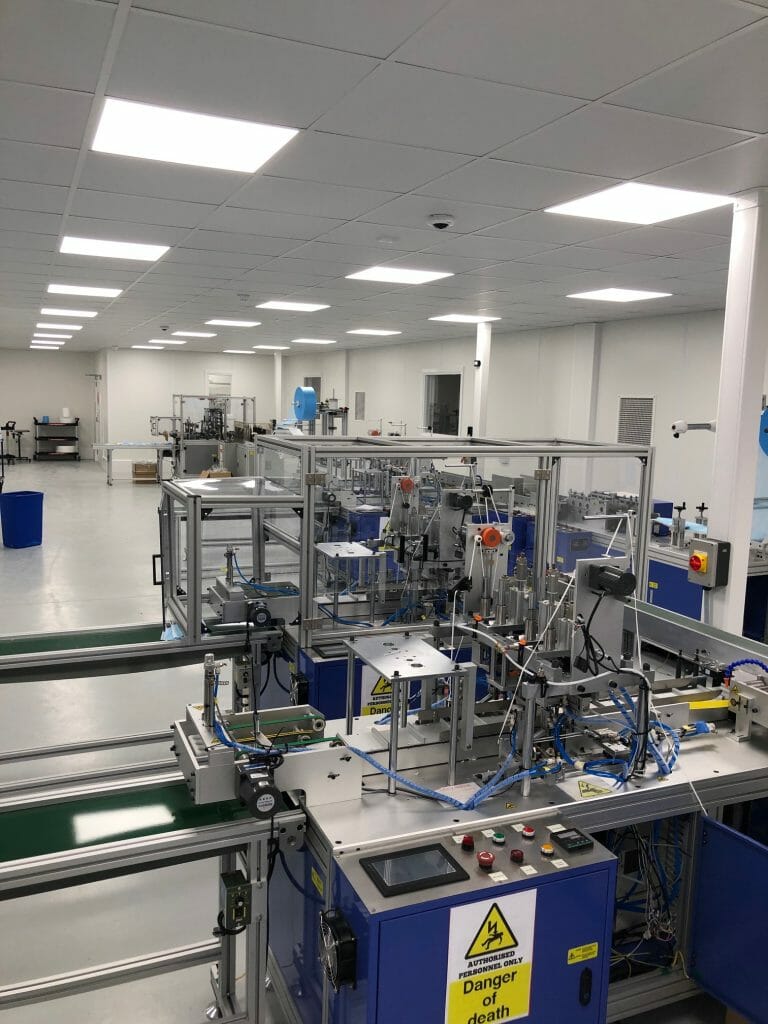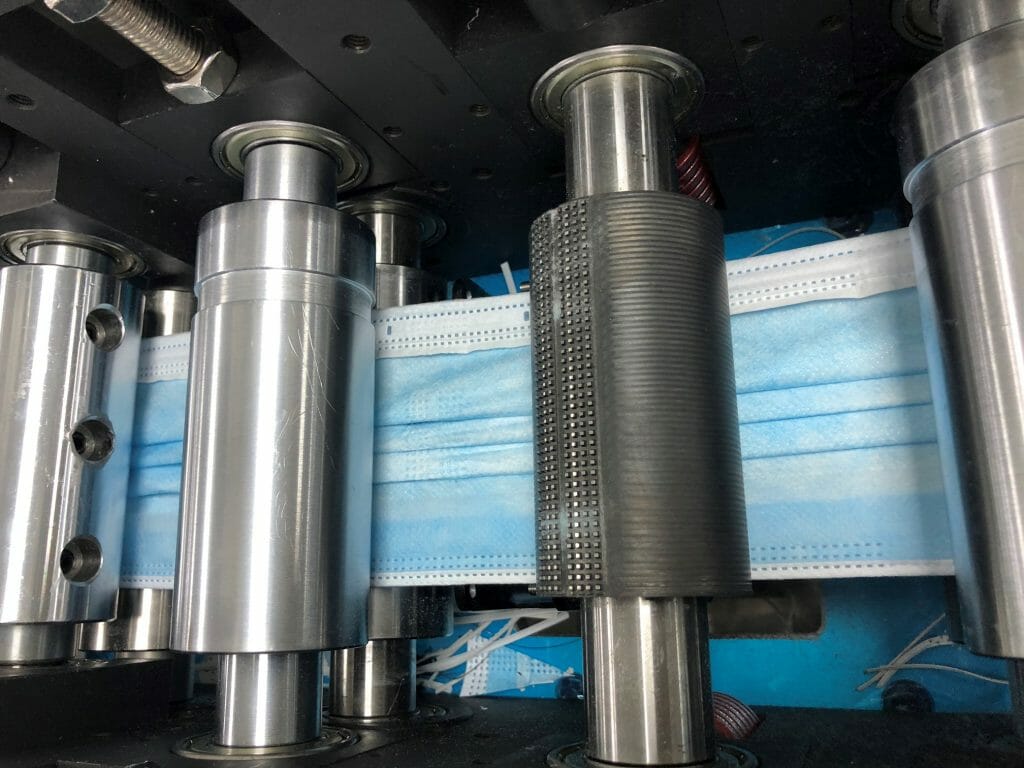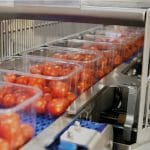When, in the Spring of 2020, the full effects of COVID -19 took hold globally, the quest to source and make available suffcient quantities of PPE and Face Masks began in earnest in the UK. Although face masks have always been commonplace within our medical and healthcare environments, unlike some far eastern countries where mask wearing has been an established practice to also mitigate the effects of pollution and previous epidemics, the UK did not have anywhere near sufficient stocks of these items for this unprecedented modern day pandemic. In this article, Telsonic UK’s Martin Frost highlights some of the technical challenges manufacturers have had to overcome, and also how Telsonic UK has played a key role in upgrading the production technology used to produce face masks.
As the magnitude of the issue facing the country became clear, the emphasis was on seeking the fastest route to initially purchasing stocks of PPE, followed by sourcing manufacturing systems to allow the UK to increase local production to meet what would be a significant and ongoing demand.
Much of the initial technology purchased by UK companies for automated mask production was sourced from China, where existing machine designs and relatively short delivery timescales made them an attractive proposition. A number of UK companies, not all of whom had previous experience of PPE manufacture, purchased multiple systems to attain the volume production required. However, once in full production, certain limitations of the design and technology used within these machines, especially the ultrasonic systems used to cut and join the mask components, began to become apparent.
The initial Chinese ultrasonic systems were found to be unreliable when faced with the duty cycle of continuous operation. In addition the lack of local support for both the machines themselves and ultrasonics resulted in high levels of “machine minding” by operators and maintenance staff to keep the systems in operation. The continual draw on resources together with the cost and lead time of spares and replacements for the ultrasonic stations were the catalysts for manufacturers seeking alternative and more reliable ultrasonic solutions.
Many of these Chinese sourced machines are used to manufacture the R2 type surgical mask. These are produced to meet standard NF EN 14683:2019. The production of these mask types requires a number of separate ultrasonic stations, typically continuous roller stations for the cross and longitudinal stitch welds / nose clip encapsulation and attaching the elastic ear loops.
- Typical R2 Type Mask Machines
- Continuous stitch weld by rollers
Fully integrated machines may have one or two roller stations, plus one or two lane ear loop outfeeds with two ultrasonic stations in each. Machine material input comprises up to four infeed reels of web, dependant on the exact R2 type 1, 2 or 2R mask variant, made up of filter Non-Woven and Melt Blown Polypropylene media and nose clip wire and with output lanes of fully assembled separate masks ready for packing. These machines typically have the capacity to produce between 80 and 100 masks per minute.
As an International organisation, Telsonic has been pro-actively supplying and supporting machine builders and mask manufacturers for R2, and higher spec FFP2 (KN95/N95) mask production in many areas around the world including: South Korea, Turkey, Italy, Canada, USA, Russia, Switzerland and of course the UK. The application knowledge and technical expertise gained from these activities, combined with the reputation for efficiency and reliability of Telsonic Ultrasonics, has seen demand for the company’s modules and systems increase significantly. The company’s subsidiaries, including the Poole facility here in the UK, have been working diligently throughout the year to supply the equipment needed for new machines, and also quickly upgrade existing machines with new ultrasonic systems.
Telsonic UK’s Martin Frost summarises: “It was great to see UK companies respond so quickly to the urgent need to manufacture Masks and other PPE items, and clearly time was of the essence. The decision to purchase machines, available on short lead times, was absolutely the right thing to do for local supply agility and local mask quality control, but until the systems arrived and were in full production there was no way of really assessing their true performance or reliability. We were delighted to be able to draw upon our extensive experience of producing these types of products and the quick integration of our ultrasonic technology which is now delivering the highest levels of productivity and yield from these systems.”
Telsonic UK offer a comprehensive range of ultrasonic modules and systems for a variety of plastic welding, cutting, sealing, cut’n’seal, food cutting, metal welding, packaging, sieving, and cleaning applications within a wide range of industries.







